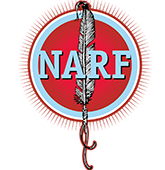California Tribal Families Coalition Establishes “The California ICWA Institute” Think Tank
On the heels of oral arguments before the United States Supreme Court on the Indian Child Welfare Act (ICWA), an organization comprised of a coalition of California tribes on Nov. 21 announced its creation of a think tank to advance and defend protections for Native children. The California ICWA Institute—a new project under The California Tribal … Read more
